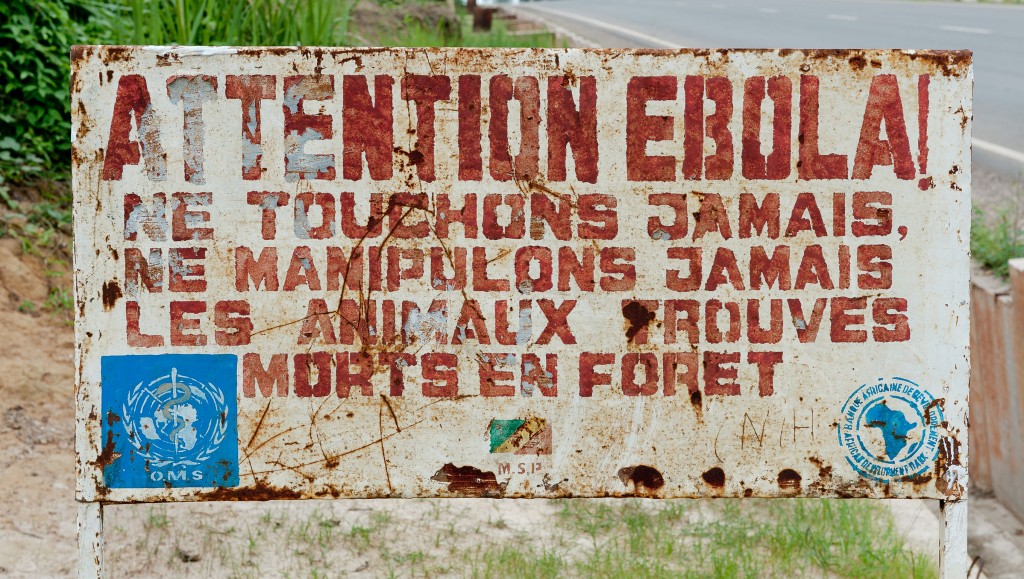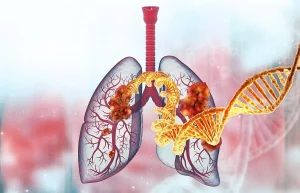 “The current outbreak in west Africa, (first cases notified in March 2014), is the largest and most complex Ebola outbreak since the Ebola virus was first discovered in 1976. There have been more cases and deaths in this outbreak than all others combined.” This statement, issued by the World Health Organization (WHO), is certainly a cause for concern. At present, there are two separate outbreaks going on in Africa: the West Africa outbreak in Liberia, Sierra Leone, and Guinea, and the outbreak occurring in Democratic Republic of the Congo. While the massive amount of suffering and death caused by this epidemic certainly provides enough reason for us here in the US to worry, I think there’s little cause for panic at this point. The Centers for Disease Control and Prevention (CDC) states that the chances of an Ebola outbreak in the US are very low and I believe that the vast medical resources, both technological and human, that we have at our disposal put us in a better and stronger position to deal with the virus than the impoverished African nations in crisis right now. All that being said, no matter how low our chances are for an outbreak on US soil, the fact of the matter is that Ebola is still a severe, highly-contagious, and often fatal, virus. It’s important to stay informed, and knowledgeable, so that you can recognize symptoms should you see them. Here’s the 411 everyone should know.
“The current outbreak in west Africa, (first cases notified in March 2014), is the largest and most complex Ebola outbreak since the Ebola virus was first discovered in 1976. There have been more cases and deaths in this outbreak than all others combined.” This statement, issued by the World Health Organization (WHO), is certainly a cause for concern. At present, there are two separate outbreaks going on in Africa: the West Africa outbreak in Liberia, Sierra Leone, and Guinea, and the outbreak occurring in Democratic Republic of the Congo. While the massive amount of suffering and death caused by this epidemic certainly provides enough reason for us here in the US to worry, I think there’s little cause for panic at this point. The Centers for Disease Control and Prevention (CDC) states that the chances of an Ebola outbreak in the US are very low and I believe that the vast medical resources, both technological and human, that we have at our disposal put us in a better and stronger position to deal with the virus than the impoverished African nations in crisis right now. All that being said, no matter how low our chances are for an outbreak on US soil, the fact of the matter is that Ebola is still a severe, highly-contagious, and often fatal, virus. It’s important to stay informed, and knowledgeable, so that you can recognize symptoms should you see them. Here’s the 411 everyone should know.
The Ebola virus originates from infected wild animals and is then subsequently transmitted to humans. Once a human is infected, the virus can spread quickly among a human population via human-to-human transmission. Historically, the virus has affected predominantly African countries and, according to WHO, the average fatality rate of Ebola has varied from 25% to 90% in past outbreaks.
Symptoms:
Symptoms can appear anywhere from 2 to 21 days, but, on average, tend appear within 8 to 10 days and include the following:
- Fever
- Severe headache
- Muscle pain
- Abdominal pain
- Vomiting
- Diarrhea
- Unexplained bleeding
- Weakness
Transmission:
The CDC states that Ebola can only be transmitted after symptoms of the disease appear. So far, research has shown that Ebola cannot be transferred by water or air. Transmission occurs through direct contact with the following:
- An infected animal
- Bodily fluids of an infected person
- Objects that have been infected by the virus
It’s important to note that once a person recovers from the virus, they are no longer a danger to others. However, Ebola can live in semen for up to 3 months so the CDC recommends either abstaining from sexual activity after recovering from Ebola, or using a condom.
Prevention:
Currently, there is no FDA-approved vaccine for Ebola.
To lower your risk of getting infected, the following is recommended by the CDC:
- Practice good hygiene and wash hands often with soap and water.
- Avoid contact with blood or other bodily fluids.
- Do not handle items that may have come in contact with an infected person’s bodily fluids – this includes needles, clothes, soiled bedding and any medical equipment.
- Avoid funeral/burial rituals that require direct handling of the body of someone who has died from the virus.
- Avoid contact with bats and non-human primates, as well as their bodily fluids.
If you travel to an affected area, avoid hospitals where infected patients are being treated. Once you return, monitor your health for 21 days and seek immediate medical care if you think you have any symptoms of Ebola.
Diagnosis and Treatment:
Ebola is tricky to diagnose because early symptoms such as fever or vomiting are non-specific to Ebola and can be diagnosed as some other type of illness. If doctors have reason to believe that a patient might be infected with Ebola, samples would be collected from the patient and lab tests would be used to confirm infection.
As far as treatment goes, there is also currently no FDA-approved drug that can treat Ebola. However, symptoms of Ebola can be treated as they present themselves. The earlier symptoms are treated, the better the chances are of survival.
Treatments include:
- Providing intravenous fluids and balancing electrolytes
- Maintaining oxygen status and blood pressure
- Treating other infections as they occur so the immune system isn’t further weakened
Recovery from Ebola depends on the availability and quality of care, how promptly care is administered, and the patient’s immune system. People who recover from Ebola can develop antibodies for at least 10 years but it’s not known if they are immune for life, and moreover, if they are immune to all strains of Ebola.
At present, both Ebola outbreaks have remained central to Africa with only two travel-associated cases having been confirmed. To reiterate, the CDC has stated that the risk of the US experiencing an outbreak is low, so there’s no need to incite mass hysteria. Nonetheless, stay vigilant – and Ebola or not, it’s always good to practice good hygiene. Better safe than sorry, right?

















